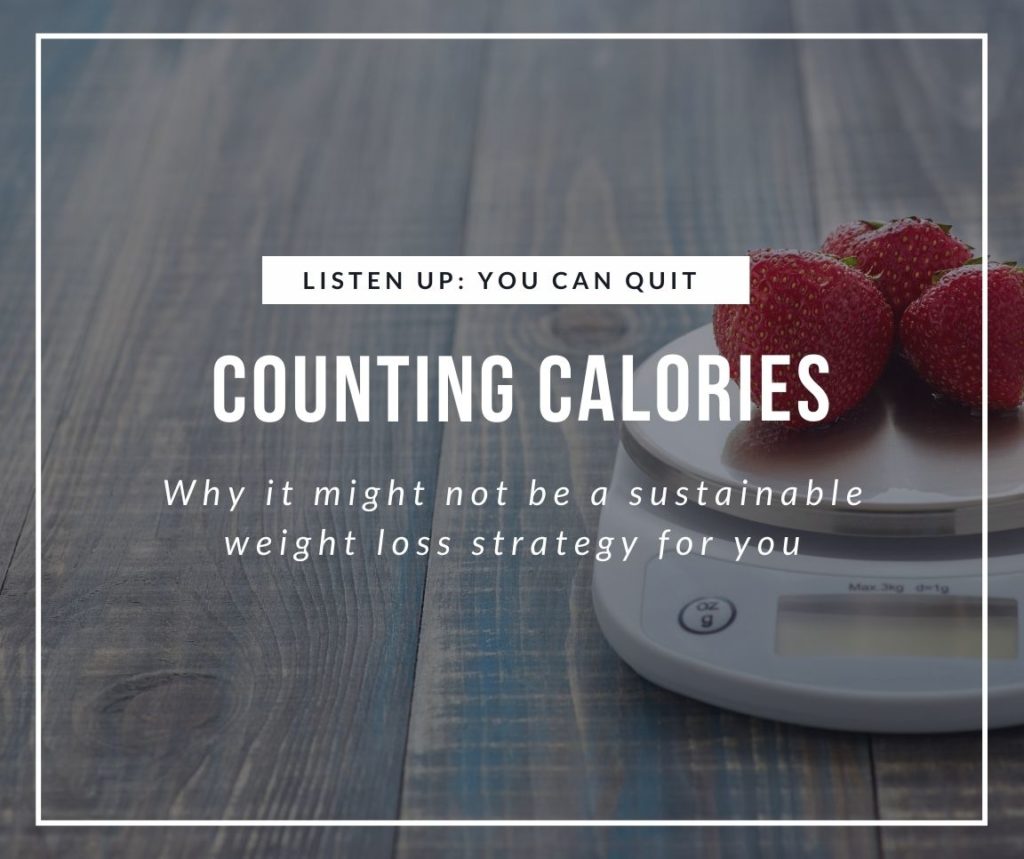You Can Stop Counting Calories to Lose Weight Now
Counting calories is one of the most popular and persistent strategies among dieters all over the world.
The calorie — a unit that measures how much energy is contained in a particular food — burst onto the American dieting scene in the 1920s, and spread like a shockwave across the rest of the Western world.
At the time, fashion was changing incredibly fast, and what was considered beautiful swung from the Victorian-era hourglass ideal, to the very thin ‘flapper’ style that we still see today in professional models…
Which meant that a lot of women wanted to lose a lot of weight, pronto.
And while there were some truly nutty weight control devices on the market (fat-removing rolling pins, anyone?), controlling your calories soon took center stage as the ‘scientific’ way to manage your weight.
True, counting calories is much more likely to help you lose weight than trying to roll it off your body.
And for many people, counting calories has been a really effective strategy, particularly when there’s a focus on a balanced macronutrient distribution.
I want to be clear that there’s nothing wrong with counting calories if it feels like a healthy and sustainable strategy that’s actively helping you to achieve your goals.
It can be a powerful way to create awareness around the amount of food you’re eating, and can help to build mindfulness about what and when you eat.
But for many people, it doesn’t feel easy or sustainable at all, and so it’s generally not an approach I advocate for the long term.
In my experience, there are a few key concerns that tend to crop up with calorie counting.
The 3 Key Problems with Calorie Counting:
1. Not all calories are created equal.
For example, eating 300 calories of cake does not do the same thing for your body that eating 300 calories of fish and vegetables would.
The cake, which has a lot of sugar and non-nutritious carbohydrates, is going to spike your blood sugar levels, which will crash again in about half an hour and leave you craving more cake.
The fish and veg, on the other hand, will trigger ‘fullness’ signals in your brain and leave you feeling satisfied and not really thinking about food anymore.
Tracking macronutrients — fat, protein and carbohydrate intake — is similar to counting calories, and can give you a more nuanced picture of what those calories are actually doing for your body. But that approach has its issues too (see point #3).
2. The science of calorie-counting is pretty dicey.
Just as important as the variation between calories is the fact that the science around counting calories often won’t be completely accurate.
Firstly, it’s difficult to calculate the precise amount of energy you as an individual need each day.
It’s completely dependent on your activity levels (which probably vary one day to the next), how much sleep you get, whether you have any metabolic or health issues that interfere with your metabolism, and much more.
It depends if you’re ovulating, menstruating, pregnant or nursing. It depends if you’re very fit, or very unfit, or somewhere in between.
There are SO many variables influencing your energy needs… and not only that, but self-reporting is also a pretty dodgy methodology, as far as science is concerned.
Self-reporting — where you track and report your own behaviours without any outside accountability — is so unreliable that it’s inadmissible as a research technique in many studies.
We are BAD at observing ourselves.
So it’s easy to get your calculations wrong and then wonder why you’re not getting the results you’re working so hard for.
3. Calorie counting can mess up your relationship with food.
Calorie counting can do a serious number on your mental health. It can make you obsessive and can lead to disordered eating. It can make you resent your body. It can isolate you from other people.
And even when you don’t suffer from these extremes, it’s just not fun to count calories.
It’s tedious at the best of times and utterly depressing at the worst.
I’ve heard so many sad stories of women opting out of dinners with friends, fun food-based dates, and even family events like Christmas and Thanksgiving. They can’t handle tracking their calories or macronutrients in those situations, they’re worried they’ll ‘lose control’ and eat something that’s not in the plan.
(Or they go along and eat a dry chicken breast out of a Tupperware container, feeling absolutely miserable watching everyone else enjoying themselves.)
That’s no way to live! Deprivation and obsession are not part of a healthy and effective diet.
Losing Weight without Counting Calories
Food should be a positive part of your life.
It should be something that brings you joy, satisfaction, connection and good health.
So here’s what I propose instead of counting calories:
1. Pay attention to what you are currently eating, and how.
Before you try to change your whole diet, keep an eye on what you eat for a few days, so that you have a clear understanding of your current baseline.
What are your regular meals? How do you feel between meals, and after eating? Do you notice fluctuations in your energy, mood or physical sensations after eating particular foods?
Do you snack when you’re bored? Are you stuffed after each meal? Do you get hangry often?
All these signals are clues you can track over time to figure out exactly what your body needs from you.
2. Instead of trying to restrict the number of calories you eat, focus on eating the right kind of calories.
Often the quantity of calories you’re eating is not the problem.
The problem is the type of calories. If you’re frequently eating take-out, snack foods, having regular ‘treats’ or drinking a lot of sodas or dessert-style coffees, this might be where you’re running into trouble.
Put your mind to evolving and improving your food choices over time — gradually reducing the amount of sugar, alcohol and highly processed foods, and increasing your lean proteins meats and fresh vegetables. If you need to snack between meals, fresh fruit, nuts and jerky can be great substitutes for cookies or chips.
3. Try to develop an intuitive approach to eating.
Intuitive eating is a practice you can develop over time. It’s the process of learning to tune in with your body and pay attention to the clues and signals it’s sending you.
Intuitive eating is really the opposite of calorie counting. Instead of focusing on a fixed number to hit, you focus on how you feel at each meal and respond to that. To help develop this awareness of what your body needs, there are a few strategies to use.
- Eat slowly. Chew your food a few more times than you are in the habit of doing.
- Pay attention to how your body feels as you are eating. Can you feel yourself getting full? What does that tell you about your portion sizes?
- Note how you feel after eating. How’s your mood, energy and focus? Do you forget about food, or are you distracted by cravings and a sense of not being satisfied?
None of this Advice is Extreme or Exciting
It’s certainly not as dramatic as drastically cutting your calories and counting what’s left like Scrooge McDuck with his pile of gold.
But the habits that transform your health are never dramatic. They’re not extreme or exciting.
The habits that truly work combine common sense with time and consistency.
And while it might take months, or even years, your health and your body will be transformed in a way that’s sustainable and that allows you to continue engaging with your life. So allow me to say it one more time:
You Can Achieve Your Weight and Fitness Goals without Counting Calories.
You don’t have to sit on the sidelines or miss out on anything.
You just need to have the right strategies in place to identify a goal, create a realistic plan to achieve, and then the momentum and accountability to actually reach that point.
That’s what I’m here for. As an online accountability coach, my role is to help you identify those goals, and then create a plan that will help you consistently make progress towards them.
I’m here to help keep you on track, help you with any roadblocks you run into, and help you become completely self-sufficient at managing your weight and wellbeing.
If you’re interested in learning more, click here to explore how online accountability coaching with me works.




